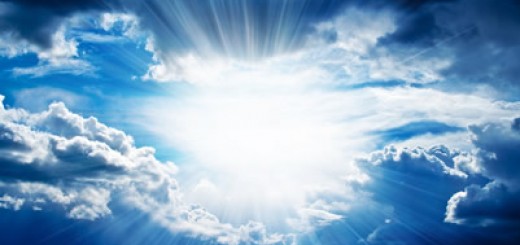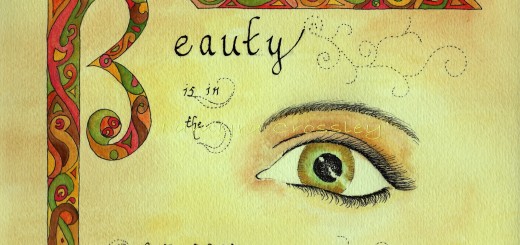So what happens to us when we die?
When it comes to thinking about what happens to our bodies when we die, the only thing we can be clear about is that there is no clarity around this subject at all! It’s beyond our human understanding and experience for a start (although there are those who claim to have had an experience of the afterlife and then come back to tell the tale).
In Surprised by Hope however, Tom Wright shows that the New Testament is crystal clear on the subject. Romans 8:23 speaks of the redemption of our bodies: we’re going to have a new type of bodily experience, fuller in every way than our present bodily life (I like to think of it as the kind of life God created humans to have from the beginning of creation – the way he always intended humans to live).
The risen Jesus is both the model for the Christian’s future body and the means by which it comes about. Tom Wright, page 161
We already possess new life in him, but when he appears on that day, that new life will ‘burst forth into full bodily reality and visibility’. For those who die in the meantime, Tom Wright believes that there is a waiting place, the paradise Jesus talked about to the thief on the cross, the place of refreshment while these individuals wait for the dawn of that new day of the new creation. Life after death and resurrection are not fully interchangeable terms. Resurrection is physical, bodily; life after death not necessarily so. Resurrection is life after life after death!
You know when someone is ill is some way and you say they’re a shadow of their former self? What Tom Wright is suggesting that we can learn from Paul’s writings is that we are all currently a shadow of our future selves. The we will be more real, more substantial, more whole, more everything!
What Paul is asking us to imagine is that there will be a new mode of physicality which stands in relation to our present body as our present body does to a ghost. Tom Wright, page 166
Belief in this future bodily resurrection affirms that whatever we do now in this present body prompted and inspired and energised by the Spirit of God will be reaffirmed in the eventual future. We will have work to do, but it will be work that we love to do. We will rule wisely over this new world. We will use our skills and talents to God’s glory. All that we work hard at now will have its fulfilment in God’s future.
As for the hows of it all, we have to leave the answers to those questions to God. He’s got it all figured out. He knows what he’s doing. God is the Creator. he can make it work.
Dust we are, and to dust we shall return. But God can do new things with dust. Tom Wright. page 170
So what about heaven and hell? And what about purgatory? Purgatory is basically a Roman Catholic doctrine. The thinking goes that as sinners, everyone is in need of punishment and purging, both before and after death. This was open to abuse by the established church and rejected by the Protestant church at the Reformation. However, according to Tom Wright, there’s still a prevalent sense in the world right now that none of us are ready to face God and it is arrogant to believe otherwise. We all need a time of preparation and transformation. If we consider All Saints Day and All Souls Day (1 and 2 November), there seems to be an understanding that the saints are already in heaven and the souls are in some in between place.
Tom Wright brings clarity in contrast to this way of thinking –
The ultimate destination is not ‘going to heaven when you die’, but being bodily raised into the transformed, glorious likeness of Jesus Christ. Tom Wright, page 180
All Christians when they die will await the final moment of this two-stage process in a state of restful happiness. All Christians. There’s no hierarchy. There’s no need for purgatory either. It’s all about grace. That punishment has been taken on by Jesus on our behalf. Nothing can separate us from the love of God.
So…hell. Part of the problem of discussing what is meant by hell is that much of what we perceive to be Christian thinking has come not from the Bible but from medieval imagery. Gehenna is the word in the New Testament often translated as Hell. But Gehenna was an actual place, the rubbish heap just outside Jerusalem. So when Jesus spoke of ‘hell’, we was not referring to the pit of fire we conjure up when we hear the word, but a very real place – a stinking place of exile and decay. The parables that Jesus taught that seem to refer to hell are more about being a warning about unacceptable behaviour towards others here on earth and less a theological lesson in what happens when we die. It was never intended that the parables would be taken literally. They were stories. In fact, Jesus’ teaching was always far more about how to live life to the full in the here and now than what to expect in the afterlife. He doesn’t shed any light on what will happen to those finally reject God. The early Christian writers don’t offer up much teaching on this either. And so we tend to arrive at one of two extreme positions: the certainty of being able to say who will go to heaven and who will not and the universalist belief that there is no such place as hell.
But how can we turn our backs on the possibility of hell or deny its existence – or at least on the possibility of a final judgement? If there is no final judgement for the horrific atrocities in our world, then surely we are left with chaos. We need to know that the perpetrators will be held accountable by God for what they have done or what are we left with? How can God be the God of justice if there is never going to be any judgement? Judgement is necessary. Evil has to be condemned. Evil has to be recognised, named and dealt with. Only then can come reconciliation.
There can be no evil in God’s new creation and so there is no place for those who have come to identify with and depend on evil. And these are not issues of personal morality by the way, but idolatry (worshipping that which is not God) and dehumanisation (treating others as less than human) – so think genocide, child prostitution, racial superiority etc. There’s a wideness in God’s mercy, yes, but God cannot accept evil (what kind of God would he be then?). So if these people are not allowed into God’s presence, then where will they go?
Tom Wright rejects all the commonly held beliefs – that these souls will suffer eternal torment, that God will let everyone in in the end or that these individuals will cease to exist. He puts forward a conjecture I have not heard before and so I will quote it in full –
One of the primary laws of human life is that you become like what you worship; what’s more, you reflect what you worship, not only back to the object itself but outwards to the world around…money…sex…power…My suggestion is that it is possible for human beings so to continue down this road, so to refuse all whisperings of good news, all glimmers of the true light, all promptings to turn and go the other way, all signposts to the love of God, that after death they become at last, by their own effective choice, beings that were once human but now are not, creatures that have ceased to bear the divine image at all…beyond hope but also beyond pity. Tom Wright, page 195
Wow, that’s pretty out there, isn’t it?! I’ll have to sit with that for a bit. Not sure what I think. The whole subject is a great mystery. We can never know for sure. I guess what really matters is how what we believe about life after death informs how we live in the here and now.
What I do know is that yes, we need to take a stand against evil wherever we come across it. There is no place in God’s good world for evil and we cannot tolerate it either. And actually, it’s time to lift our gaze from what will happen to the individual to what is going to happen to the whole of God’s creation.
How is God going to rescue and redeem and renew his world and what role are we being invited to play?












